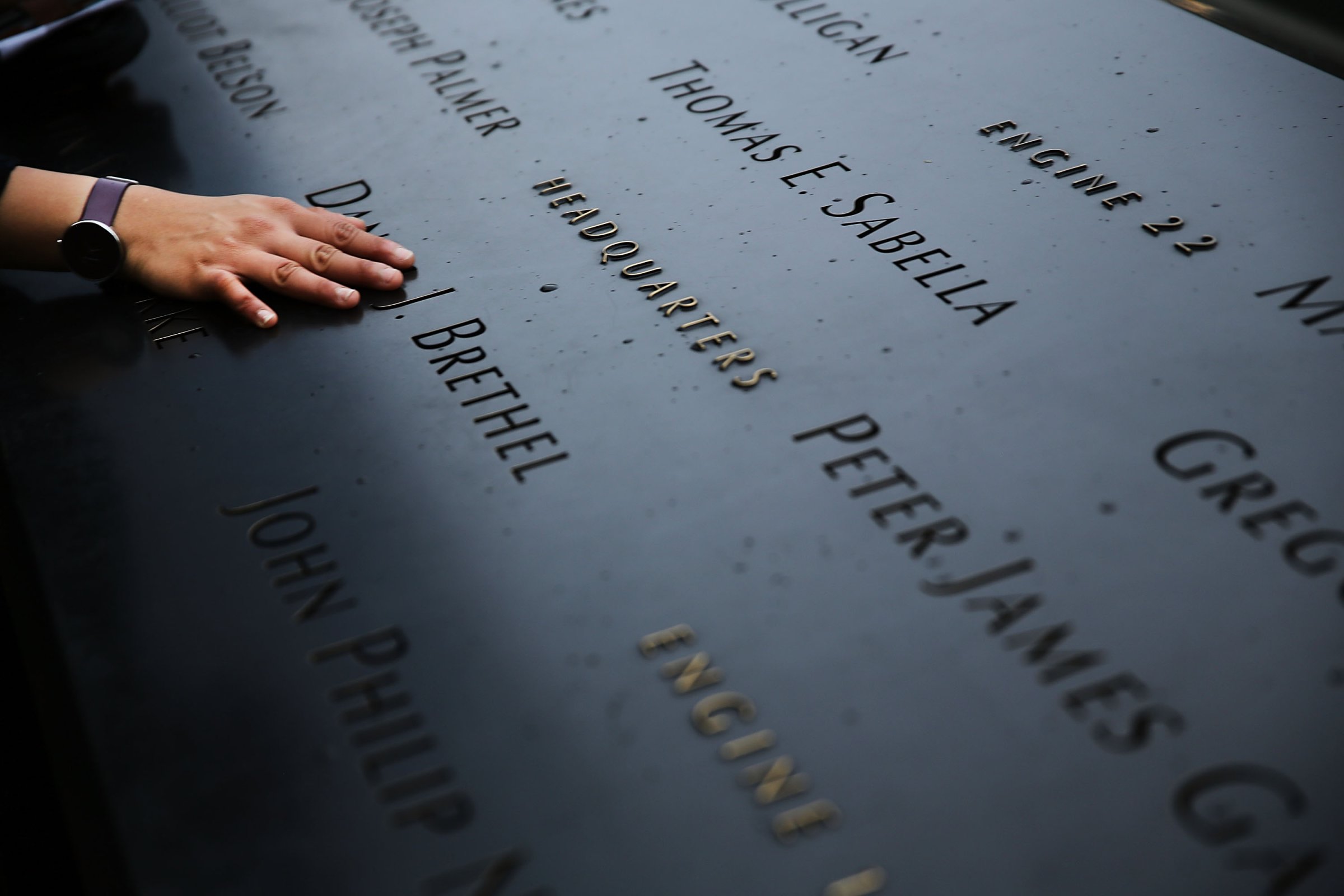
This year, Eid ul Adha—Islam’s holiest holiday—falls just one day after the 15-year anniversary of 9/11.
Perhaps serendipitous, just one day after the anniversary of when extremists violently took so much, the Eid of Sacrifice asks Muslims to reflect over all we’ve willingly given up in service to humanity, in service to God and in efforts to promote peace, pluralism and progress.
This unique historical timing caused me to again reflect on the effect of that terrible day—personally and publicly. In September of 1993, I sat in Mr. Hofmann’s sixth-grade social studies class and listened to him lecture about the Crusades—wars of extremists that massacred thousands of innocent people. In September of 2016, I returned to Mr. Hofmann’s classroom to lecture to his students about 9/11—an attack by extremists that massacred thousands of innocent people. My personal experience saw a shift in classroom lessons on extremism.
As I finished my lecture, I saw one major public effect of 9/11. A student raised his hand and asked with full sincerity: “Why do Americans hate Muslims?”
This boy is only 11—born years after September 2001. Yet, in his innocent mind, it was already a foregone conclusion that Americans and Muslims are mutually exclusive, and more devastatingly, that Americans hate Muslims.
The lessons Eid ul Adha offers remedies the student’s misunderstanding, but more important, remedies the fear that many non-Muslims express about Muslim Americans. This Eid provides the groundwork for our nation and our world to move forward together as a stronger humanity.
All too often we forget that the nearly 3,000 innocent lives lost on 9/11 was just the beginning. The wars that followed in Afghanistan and Iraq resulted in thousands of more American lives lost, and hundreds of thousands of innocent civilians murdered in Afghanistan and Iraq. President Obama has further acknowledged the rise of ISIS is a direct response to the unjust war in Iraq.
The Eid of Sacrifice is Islam’s holiest holiday because it marks the end of the Hajj pilgrimage. It commemorates Prophet Abraham’s willingness to sacrifice his son Ismael. God intervened and instead, he sacrificed a ram. On a deeper level, this Eid of Sacrifice asks Muslims to sacrifice our egos for the sake of service to God and service to humanity. The literal shift from sacrificing a person to sacrificing a ram set a precedent of the sanctity of all human life. This event established the principle that any act that takes innocent human life—such as the nearly 3,000 innocent lives taken on 9/11—is, in fact, repulsive to divine order.
We too must we overcome our fears and sacrifice our egos—and admit our strategies over the past 15 years have not worked. Wars of Western aggression have created nothing but more extremists, more orphans and more enemies. Death for apostasy and death for blasphemy laws that run rampant in several Muslim-majority countries are an insult to humanity and to Islam. They succeed only in creating more ignorance, hate and terrorism.
Even if we assume that 11-year-old child is right and somehow Americans hate Muslims—that still does not give anyone a pass. The concept of loving thy enemy is a foundational teaching of both Prophet Muhammad and Jesus Christ. If we are unable or unwilling to implement this courageous teaching when it matters most, then either these teachers are not worth embracing, or we as a people unworthy of the teachers. Considering our failures over the past 15 years, I tend to think the issue is not our teachers, but us as students.
Which returns me to Mr. Hofmann’s sixth-grade class in 1993. In that class, he taught us that while the Crusades were wars of extremists, they did not represent the compassion of Christ. Likewise, I had the chance to teach his students in 2016 that while the perpetrators of 9/11 were extremists, their acts are the anti-thesis to the magnanimity of Muhammad and the message of true Islam.
Today, certain politicians continue to try and drive a wedge between Muslims and Americans. But we have the power to rise above the hate and bigotry. The 15 years after 9/11 have taught us what Mr. Hofmann’s social studies class taught me as a young child—wars cannot end terrorism, but personal sacrifice and education can.
This Eid of Sacrifice, reach out to your Muslim neighbors for the sake of humanity and for the sake of God. Let us write that courageous next chapter for peace—together.
More Must-Reads From TIME
- The 100 Most Influential People of 2024
- Coco Gauff Is Playing for Herself Now
- Scenes From Pro-Palestinian Encampments Across U.S. Universities
- 6 Compliments That Land Every Time
- If You're Dating Right Now , You're Brave: Column
- The AI That Could Heal a Divided Internet
- Fallout Is a Brilliant Model for the Future of Video Game Adaptations
- Want Weekly Recs on What to Watch, Read, and More? Sign Up for Worth Your Time
Contact us at letters@time.com